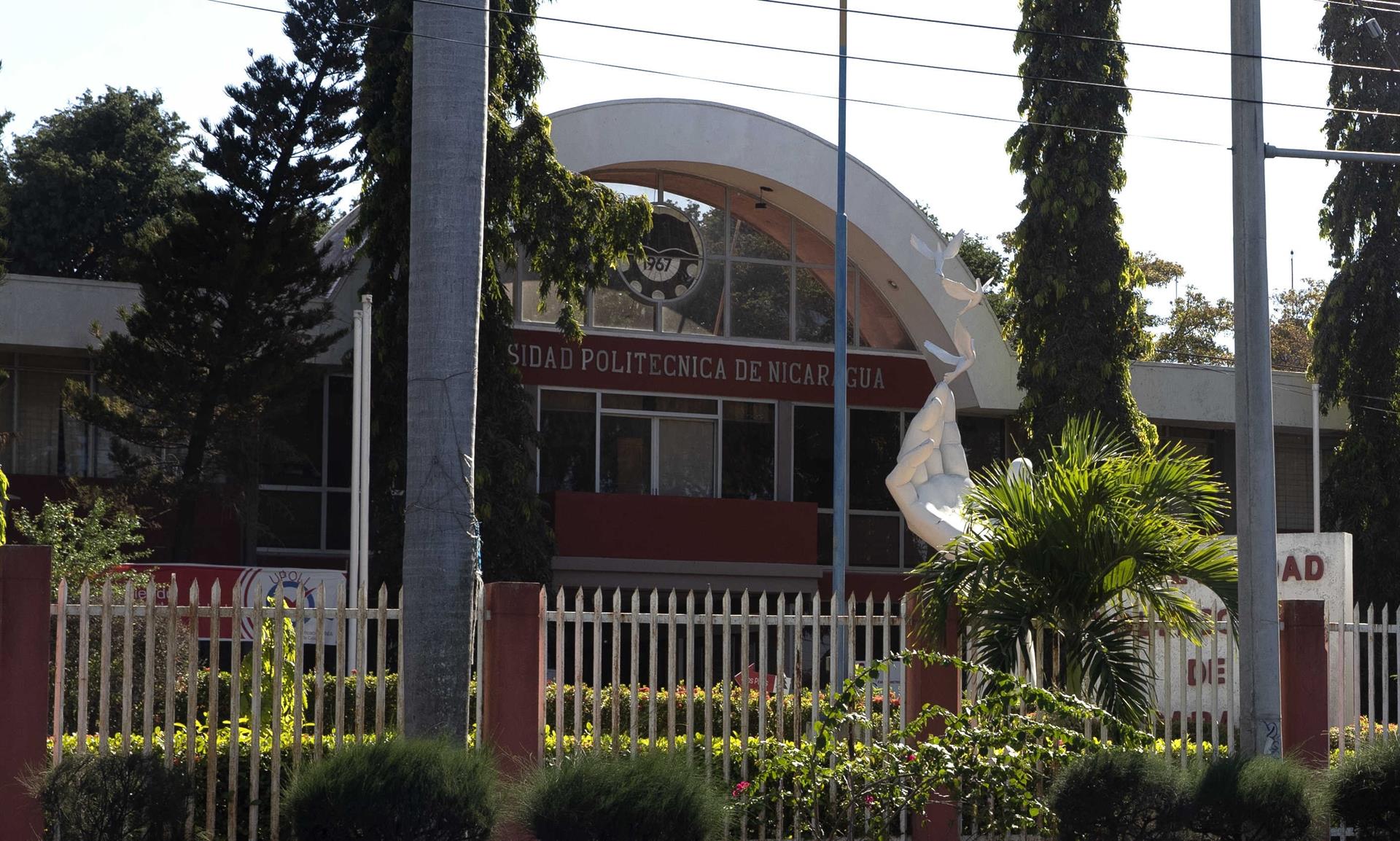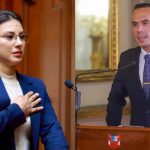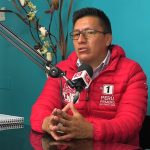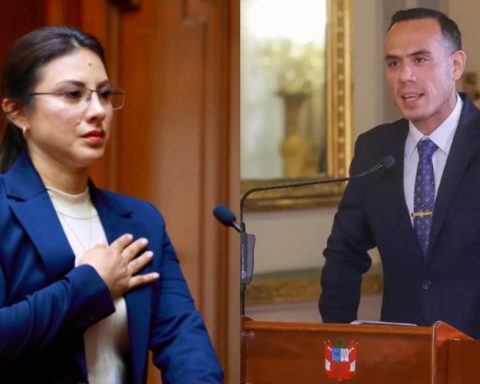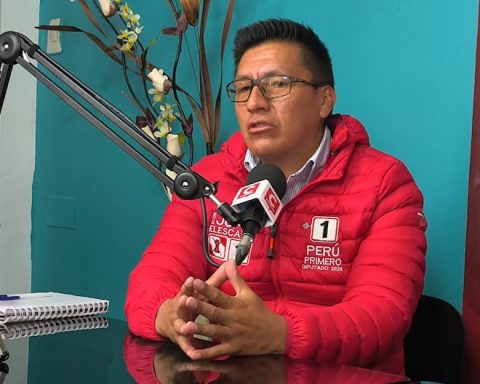The creation of three new state universities, from the assets of six universities canceled and intervened by Ortega orders, this February 7, is “clearly a confiscation”, which is prohibited by the Political Constitution of Nicaragua, value Nicaraguan lawyers .
The deputies of the National Assembly —controlled by Ortega— approved without objection the creation of the universities: Francisco Luis Espinoza Pineda, National Polytechnic University (UNT) and the Ricardo Morales Avilés National Multidisciplinary University, through which they transfer to the State the assets of the canceled Polytechnic University of Nicaragua (Upoli), Nicaraguan Popular University (Uponic), Catholic University of the Dry Tropics (Ucatse), Nicaraguan University of Humanistic Studies (Uneh), Paulo Freire University (UPF) and the Hispano-American University (Uhispam). ).
However, the lawyer and public notary, Martha Patricia Molina criticizes that the State of Nicaragua “is not guaranteeing the right to private property of movable and immovable property and of the instruments and means of production.”
The member of the Pro Transparency and Anticorruption Observatory assures that “in other words, it is a robbery”, because “the State is robbing you and does not give you anything in return”. She explains that Nicaraguan legislation does establish the figure of expropriation, which is subject “for reasons of public utility or social interest.” However, she indicates that in these cases the State has to repair, economically, the good that is being occupied, but this is not happening in the case of the canceled and occupied universities.
A second jurist, who requested anonymity to avoid reprisals from the Daniel Ortega regime, agreed that the three laws approved by the National Assembly constitute “a de facto confiscation” and —in addition— falls into the illogical because on what has been illegalized “they intend to build without solution of continuity”, that is to say that “universities that were already dissolved now magically become other universities. That’s impossible,” he comments.
“The most damaging and largest confiscation”
For the jurist, the most delicate case is that of the Ricardo Morales Avilés National Multidisciplinary University since, he values, “it is a university hodgepodge”, on which the deputies brought together four universities that have already been dissolved and that had different statutes, in such a way that “everything that is being arranged now contradicts those statutes.”
“Here everything that is going to be done is being put at risk from the outset, because it is ill-gotten,” says the jurist. “Without fear of being wrong, it can be assured that we are facing the most damaging and largest confiscation that has been carried out in Nicaragua in recent decades,” he added.
Through his art, Molina appreciates that what happened with the universities responds to “an issue more political than legal”, because article 125 of the Constitution establishes that “universities and technical education centers enjoy academic, financial, organizational and administrative autonomy and are exempt from all taxes and fiscal, regional and municipal contributions and their assets and income may not be subject to intervention, expropriation, or embargo. Except when the obligation that is asserted has its origin in civil, commercial or labor contracts and this is not the case”, he underlines.
In addition, the State – which should be the guarantor of the right to education – “is in charge of violating it”, using the internal legal system “to give the appearance of legality”, adds Molina.
Costa Rica expresses concern
The closure and subsequent confiscation of private universities in Nicaragua has generated concern in the region. Costa Rican Foreign Minister Rodolfo Solano Quirós told local media that “Costa Rica supports, in particular, the recent pronouncement of the National Council of Rectors of Costa Rica, which has raised with the Central American Superior University Council (CSUCA) its concern for the disrespect and violation of the autonomy of Nicaraguan universities, as well as the violence and repression exercised against their student movement.”
The creation of the three new state universities, in an express act of the Ortega steamroller in the National Assembly, occurred five days after the Assembly itself canceled the legal status of five private universities, and that the National Council of Universities (CNU) occupied its facilities. Two months earlier, the Hispano-American University (Uhispam) had also been cancelled, adding a total of six study houses.
Francisco Luis Espinoza Pineda National University
The first university created this Monday was the Francisco Luis Espinoza Pineda National University, which will function as a State higher education center, with legal personality, functional autonomy, technical, administrative and financial, own assets, indefinite duration and full capacity to acquire rights and incur obligations.
It will also be a member of the National Council of Universities and will be “the legal successor without interruption of the extinct Catholic Agricultural University of the Dry Tropics (Ucatse)”, says the first paragraph of article one. “In any legal instrument where Ucatse, formerly known as the Francisco Luis Espinoza School of Agriculture and Livestock, is mentioned, it should read: Francisco Luis Espinoza National University,” he continues.
This new university will have its domicile in the city of Estelí, in the north of Nicaragua, and its rector will be appointed by the CNU. You can also request “free of all taxes” the registration of the transfer of all real estate, tangible and intangible assets, means of transportation and livestock that belonged and are registered in the name of Ucatse.
National Polytechnic University (UNP)
Another state university created this Monday was the National Polytechnic University (UNP), which according to the deputies is intended to “guarantee the continuity of the academic programs that were offered by the defunct Polytechnic University of Nicaragua (Upoli)seeking equal or superior academic quality and for the safety of Nicaraguan students”.
As in the previous case, the UNP will enjoy “functional, technical, administrative and financial autonomy, its own assets, indefinite duration and full capacity to acquire rights and incur obligations.” In addition, the deputies warn, “any legal instrument where the Polytechnic University of Nicaragua (Upoli) is mentioned, should read: National Polytechnic University (UNP)”.
About the new university it is only known that it will have its domicile in the city of Managua, being able to establish headquarters in any part of the Nicaraguan territory. Its rector will be appointed by the CNU, for a period of four years, and the resources with which it is being constituted are “the goods of any nature, rights, assets and obligations” that belonged to the extinct Upoli and the financial resources that the State assigns him through the CNU.
Ricardo Morales Avilés National Multidisciplinary University
In addition, the new Ricardo Morales Avilés National Multidisciplinary University was created with the aim of confiscating the academic programs that were offered by: the Hispanic American University (Uhispam), Nicaraguan University of Humanitarian Studies (Uneh), Popular University of Nicaragua (Uponic) and the Paulo Freire University (UPF).
The National Multidisciplinary University was also established as a state higher education center, with legal personality, functional, technical, administrative and financial autonomy, its own assets, indefinite duration and full capacity to acquire rights and incur obligations, and is a member of the CNU.
This university will have its headquarters in Managua and will receive all the assets that belonged to the canceled universities.
